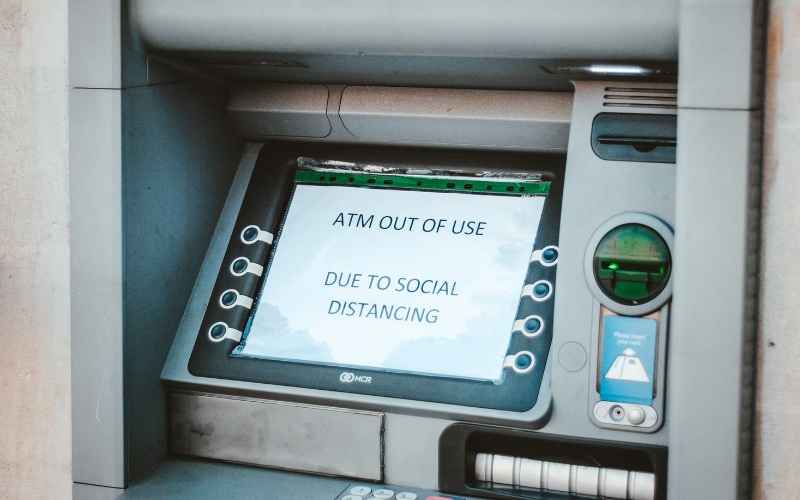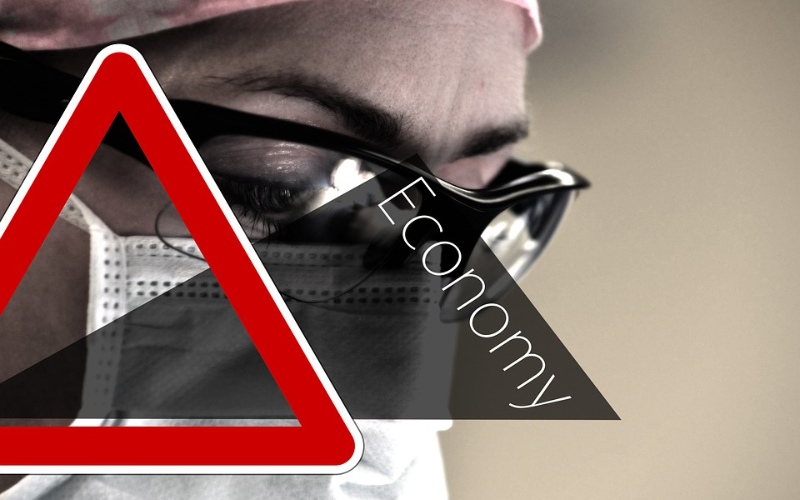We already know that 2020 has had its share of bad news, but sadly we’ve got some more coming your way. It turns out that this year has been record-breaking in terms of financial scams committed, mainly online but also offline. Before we try to understand exactly why this has happened, let’s understand what this actually means – and we’ll focus on online scams.

It is considered financial fraud when someone deprives you of your money or otherwise harms your financial health as a result of misleading, deceptive, or other illegal business practices. The use of various methods, such as identity theft or investment fraud, can be used to accomplish this. The vast majority of victim compensation programs do not compensate for money lost as a result of fraud or fraudulent schemes. You must check your state’s laws on victim compensation to ensure that you are not breaking any rules. Civil justice may be the only legal option available to recover money that has been lost. In any case of financial fraud, it is critical to notify the appropriate authorities and law enforcement authorities as soon as possible after the crime has been committed. If you suspect that you have been charged with fraud, you should dispute or cancel the charges as soon as possible.
Furthermore, victims should gather documentation related to the crime, such as bank statements, credit reports, and tax forms from the current and previous years, and should continue to file important information throughout the reporting process until the investigation is complete. Financial crime is a type of crime committed against property that involves the unlawful conversion of ownership of property (belonging to another person) for the benefit of one’s own personal gain and benefit. Theft, scams, or confidence tricks; tax evasion; bribery; sedition; embezzlement; identity theft; money laundering; forgery and counterfeiting, including the production of counterfeit money or consumer goods; and forgery and counterfeiting, including the production of counterfeit money and consumer goods.
Financial crimes may be associated with other criminal acts, such as computer crime and elder abuse, as well as violent crimes, such as robbery, armed robbery, and murder, among others. Individuals, corporations, and organized crime groups can all commit financial crimes, as can their associates. Individuals, corporations, governments, and entire economies can all be victims of cybercrime. Larger forms of financial collusion are frequently classified as criminal syndicates by law enforcement authorities.
For a while now, creative minds have been looking for ways to convince people to give them their money over the internet, with different promises of worthy investments and quick earnings. These financial scams usually come in the form of trade offers – an investment in a stock, a currency, or even a commodity with hopes of getting rich as its value increases. They also promise investors quick profits and low risk, but none of this is delivered at the end of the day.

As long as there are people unaware of this bad system, the scammers will continue trying their luck (and we’re here to fight that). It is interesting, however, to understand why this year, they seem to have had more courage and drive to commit their crimes. There are three main reasons for this shameful phenomenon, as we will explain.
If you have been scammed by a financial scam then contact us to help you get your money back!
COVID Consequences
The economic crisis that was a result of the pandemic left a lot of people out of their job. Restrictions and lockdowns caused many businesses to let employers go – or even shut down completely. Add to that the fact that all over the world, people were instructed to stay at home, and you’ll get a recipe for soaring unemployment rates.
As governments failed to provide people with financial security, they were looking for ways to make ends meet – and quickly. The World Wide Web is a comfortable arena for scammers to operate in, and they know how to take advantage of people’s distress. By targeting the right crowd and presenting unrealistic projections of earnings, the crooks managed to bait quite a lot of innocent fish this year.

The COVID-19 pandemic has had a profound impact on every aspect of our lives, and it continues to do so. With 252 million carriers identified and 5 million deaths predicted by the World Health Organization [WHO] by 2021, data indicate that older adults are at greater risk of developing COVID-19-related health complications or dying as a result of the virus (Centers for Disease Control and Prevention [CDC], 2022). Furthermore, the coronavirus is not the only viral contagion associated with the pandemic: the emergence of COVID-19 has resulted in an increase in scams, which has had serious emotional, financial, and health consequences for those who have fallen, victim. We define “COVID-19 frauds or scams” as dishonest and deceitful schemes that use a COVID-19 cover story and are potentially dangerous to consumers, for example, by extracting money or personal information from them, selling sham products or services, or causing bodily, technological, or other harm to them, among other things (e.g., through ingesting alleged healthcare products or installation of malware on electronic devices). Consider the following examples: issues caused by COVID-19 (e.g., exposure to the virus) or issues related to prevention of COVID-19 (e.g., through products) or benefits associated with COVID-19 are all possible topics for cover stories (e.g., financial relief payments).
Volatile Venues

Another consequence of the Coronavirus is instability in markets worldwide. Surges and drops come unexpectedly in stock and commodity values, and that may seem like a deterrent from investing in them at first, but some experts will tell you that there’s a great opportunity here as well. The problem, once again, is with dishonest brokers who fool you into thinking they know exactly when a soar in value is headed your way.
But it’s not just about shares and commodities. A whole lot of forex scams have also been reported, and the system is the same – people are being told that the value of a certain currency is expected to rise dramatically and that they should invest in it ASAP. When the investors realize that it’s not going to happen, they are left with pretty much no one to talk to.
Lost money to online fraud? We will recover your funds !
Crypto Cravings
One form of investment that has definitely enjoyed revenues, despite the slowdown is the cryptocurrency market. For those who haven’t heard of them, cryptocurrencies are virtual coins that are not related to any nation and therefore to any central bank or hard currency. While the value of these currencies tends to rise when actual currencies seem less trustworthy, there’s also a danger to investors here.
Estimates are that around 7,000 different cryptocurrencies are being traded today. While some of them are at soaring rates, like the Bitcoin, most are unknown and as volatile as regular currencies. This does not stop scammers from marketing them as promising investment venues for novice traders, who are left at the end of the day with no money and one to turn to.
It’s in your hands!!!

There’s also good news here: Along with the concerning rise of financial scams on the internet, there’s also a growing awareness of them and caution against them. What we recommend is to first and foremost trust your instincts before providing your billing deals to any broker. If it seems suspicious, it probably is. If online reviews present a reality different from the picture painted by the trading website, this would be a good sign to opt-out
If you have fallen victim to one of these scams, though, don’t give up hope. We’re here to try and return your money, and we’ve been doing just that for quite a while now with high success rates. All you need to do is fill out the ‘Free Case Review’ form on our website, and we will arrange a consultation meeting at no cost, where we will present you with a plan and a price offer. But, most importantly, don’t be ashamed to approach us – you’re not the first and sadly not the last victim of these terrible people.
Financial Crimes of 2022
Identity Theft
Someone steals your personal financial information (e.g., credit card number, social security number, bank account number) and uses it to make fraudulent charges or withdrawals from your bank or other financial accounts. People have been known to use stolen information to open credit or bank accounts, leaving the victim liable for the entire amount of the charges. Damaged credit ratings, bounced checks/denied payments, and collection agency harassment are all common consequences of identity theft. Examples include charges or purchases on your credit card or bank account statements that you are not familiar with, or a bank, government office, or official institution may be impersonated in order to obtain personal financial information from you.
Investment Fraud

Making false, misleading, or fraudulent statements about investments or securities in order to sell them. This can include, among other things, making false or grandiose promises, concealing or omitting key facts, and providing insider trading tips. Ponzi schemes are a type of investment fraud scheme in which returns are paid to investors using new capital from newly recruited investors, rather than interest and profits from legitimate investments, as opposed to traditional investment schemes. Pump and dump schemes are when stock traders or stockbrokers purchase a stock at a low price and then entice other clients to purchase the same stock in order to inflate the stock’s price. Pump and dump schemes are illegal. Those who purchased the stock at a low price later sell their holdings and pocket the profit they made. Selling a business or real estate investment opportunity with erroneous, inaccurate, or false information is prohibited. It also includes withholding or concealing information that is critical to making an investment decision.
Mortgage and Lending Fraud
An unauthorized person (often a friend or family member) opens a mortgage or loan in your name or with false information, or lenders sell you a mortgage or loan using inaccurate information, deceptive practices, or other high-pressure sales techniques. Mortgage and loan modification services are examples of this type of service. Predatory lending practices include, for example, the following: unjustified risk-based pricing is a problem, credit insurance with a single premium, failure to present the loan price as negotiable is a serious offense, failure to disclose terms and conditions in a straightforward and accurate manner, paying disproportionately high-interest rates on short-term loans, contract negotiations that are “bait and switch” and, abuse by a servicing agent and in the securitization process.
How to Prevent Yourself from Getting Financially Scammed?

It is critical to report all types of financial fraud to the appropriate authorities and law enforcement authorities as soon as possible after the crime is committed. Disputed or canceled fraudulent charges should also be done immediately upon discovery of the fraud. As a further precaution, victims should gather all relevant documentation pertaining to the crime (for example, bank and credit card statements, credit reports, tax returns from the current and previous years) and continue to file critical information throughout the reporting process. Unfortunately, the majority of victim compensation programs do not reimburse money that has been lost as a result of fraud or fraudulent schemes. To be sure, check your state’s laws on victim compensation to ensure that you are covered. Civil justice may be the only legal option available to recover money that has been lost.
Examine your financial records. Check your credit card and banking accounts on a regular basis to ensure that no unauthorized charges have been made to your accounts. Monitor your online or mobile banking accounts on a daily basis to help you catch fraudulent charges as soon as possible. Change the passwords on your accounts. Passwords on sensitive accounts should be changed on a regular basis, and you should avoid using the same password on multiple accounts. Online transactions should be approached with caution. Whenever you shop online, make certain that you are using a secure internet connection and avoid using public Wi-Fi. Confirmation of all financial communications is required. Always be on the lookout for common scams such as phishing, which is a process in which scammers send emails purporting to be from a bank and request that you update or confirm your account details. If you have any concerns about your account information falling into the wrong hands, you should always contact your bank directly. It’s also important to remember that the Internal Revenue Service will never contact you via email, text, or social media to request personal or financial information.



